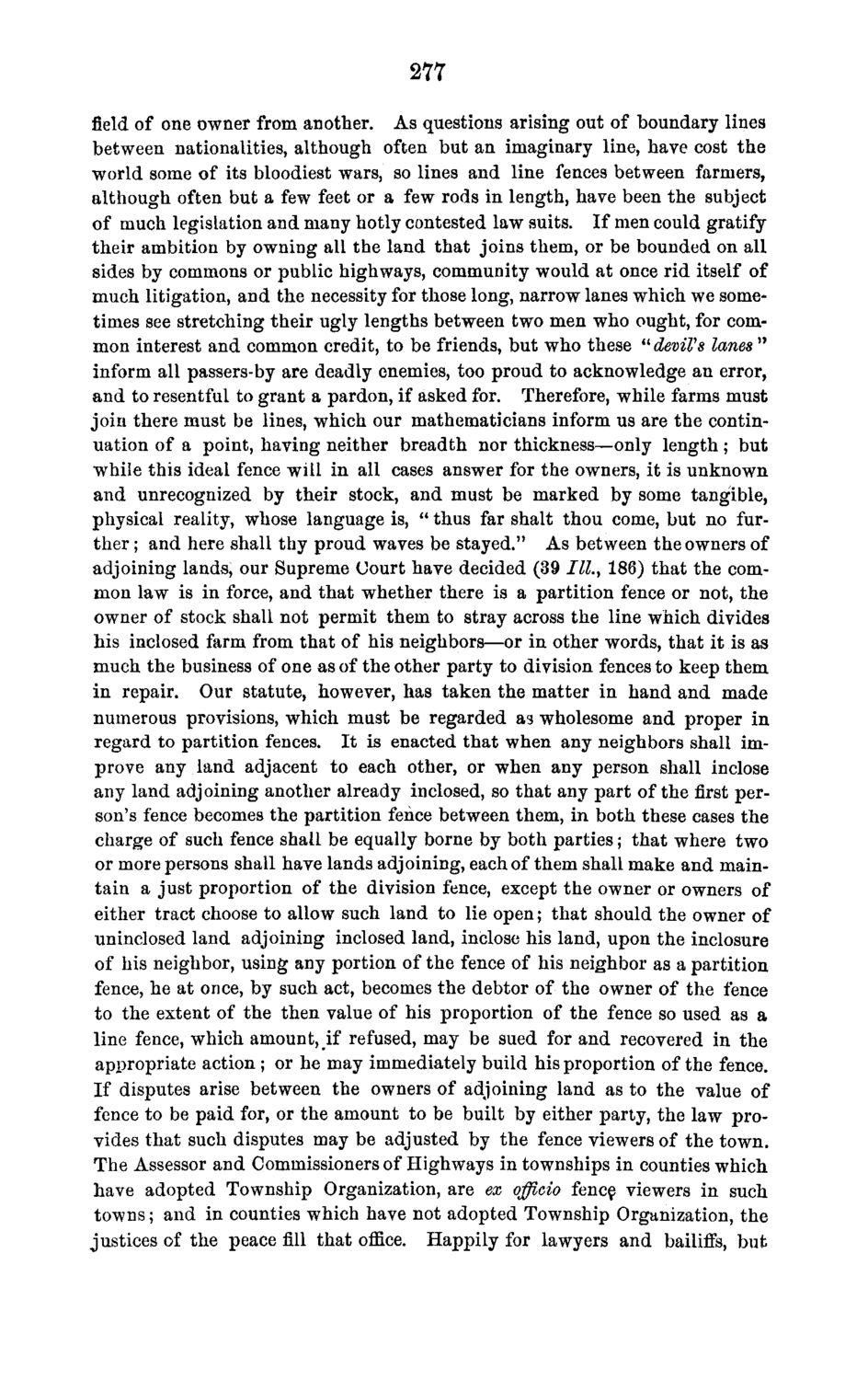| |
| |
Caption: Board of Trustees Minutes - 1870
This is a reduced-resolution page image for fast online browsing.

EXTRACTED TEXT FROM PAGE:
277 field of one owner from another. As questions arising out of boundary lines between nationalities, although often but an imaginary line, have cost the world some of its bloodiest wars, so lines and line fences between farmers, although often but a few feet or a few rods in length, have been the subject of much legislation and many hotly contested law suits. If men could gratify their ambition by owning ail the land that joins them, or be bounded on all sides by commons or public highways, community would at once rid itself of much litigation, and the necessity for those long, narrow lanes which we sometimes see stretching their ugly lengths between two men who ought, for common interest and common credit, to be friends, but who these " devil's lanes " inform all passers-by are deadly enemies, too proud to acknowledge an error, and to resentful to grant a pardon, if asked for. Therefore, while farms must join there must be lines, which our mathematicians inform us are the continuation of a point, having neither breadth nor thickness—only length ; but while this ideal fence will in all cases answer for the owners, it is unknown and unrecognized by their stock, and must be marked by some tangible, physical reality, whose language is, " thus far shalt thou come, but no further ; and here shall thy proud waves be stayed." As between the owners of adjoining lands, our Supreme Court have decided (39 Ill.> 186) that the common law is in force, and that whether there is a partition fence or not, the owner of stock shall not permit them to stray across the line which divides his inclosed farm from that of his neighbors—or in other words, that it is as much the business of one as of the other party to division fences to keep them in repair. Our statute, however, has taken the matter in hand and made numerous provisions, which must be regarded as wholesome and proper in regard to partition fences. It is enacted that when any neighbors shall improve any land adjacent to each other, or when any person shall inclose any land adjoining another already inclosed, so that any part of the first person's fence becomes the partition fence between them, in both these cases the charge of such fence shall be equally borne by both parties; that where two or more persons shall have lands adjoining, each of them shall make and maintain a just proportion of the division fence, except the owner or owners of either tract choose to allow such land to lie open; that should the owner of uninclosed land adjoining inclosed land, inclose his land, upon the inclosure of his neighbor, using any portion of the fence of his neighbor as a partition fence, he at once, by such act, becomes the debtor of the owner of the fence to the extent of the then value of his proportion of the fence so used as a line fence, which amount, if refused, may be sued for and recovered in the appropriate action ; or he may immediately build his proportion of the fence. If disputes arise between the owners of adjoining land as to the value of fence to be paid for, or the amount to be built by either party, the law provides that such disputes may be adjusted by the fence viewers of the town. The Assessor and Commissioners of Highways in townships in counties which have adopted Township Organization, are ex officio fence viewers in such towns; and in counties which have not adopted Township Organization, the justices of the peace fill that office. Happily for lawyers and bailiffs, but
| |